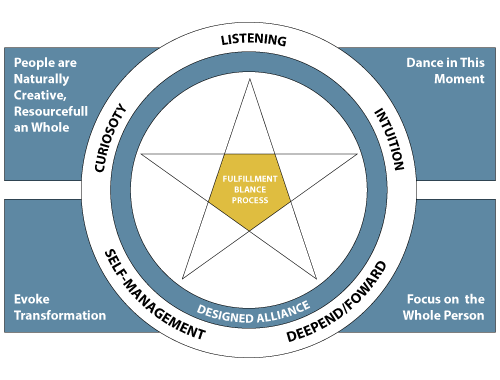What is Coaching?
My own definition:
Coaching is a partnership, where coach and client collaborate to achieve the client’s goals through self-discovery, directed action, and personal growth. In a coaching relation, the coach uses professional skills to support the client in identifying clear objectives, making conscious decisions and aligning actions with personal values to experience fulfillment.
Few definitions by different authors:
ICF - The International Coach Federation defines coaching as “partnering with clients in a thought-provoking and creative process that inspires them to maximize their personal and professional potential, which is particularly important in today’s uncertain and complex environment. Coaches honor the client as the expert in his or her life and work and believe every client is creative, resourceful and whole. Standing on this foundation, the coach's responsibility is to:
- - Discover, clarify, and align with what the client wants to achieve
- - Encourage client self-discovery
- - Elicit client-generated solutions and strategies
- - Hold the client responsible and accountable
This process helps clients dramatically improve their outlook on work and life, while improving their leadership skills and unlocking their potential”.
“Coaching is a widely-used term with various meanings, depending on the situation. The term coaching typically refers to methods of helping others to improve, develop, learn new skills, find personal success, achieve aims and to manage life change and personal challenges”. (from businessballs.com).
“Unlocking a person’s potential to maximize their own performance. It is helping them to learn rather than teaching them” (Whitmore 2003).
“A collaborative, solution focused, result-orientated and systematic process in which the coach facilitates the enhancement of work performance, life experience, self-directed learning and person growth of the coachee” (Grant 1999, basic definition also referred to by the Association for Coaching, 2005).
“A professional partnership between a qualified coach and an individual or team that support the achievement of extra-ordinary results, based on goals set by the individual or team “(ICF, 2005).
“The art of facilitating the performance, learning and development of another” (Downey, 2003).
“Coaching is about developing a person’s skills and knowledge so that their job performance improves, hopefully leading to the achievement of organisational objectives. It targets high performance and improvement at work, although it may also have an impact on an individual’s private life. It usually lasts for a short period and focuses on specific skills and goals.” (CIPD 2009).
[Co-active] coaching is “a powerful alliance designed to forward and enhance a life-long process of human learning, effectiveness and fulfillment” (Whitworth et al 2007).
“Coaching is about enabling individuals to make conscious decisions and empowering them to become leaders in their own lives” (Wise 2010).
What is Co-Active Coaching?
The Co-Active model was created by Henry Kimsey-House, Karen Kimsey-House and Laura Witworth, also founders of CTI - The Coaches Training Institute.
According to them, “Co-Active Coaching is an experience of personal and professional development unlike other kinds of coaching. Based on the Co-Active Model, it begins by holding the coachee as naturally creative, resourceful and whole, and completely capable of finding their own answers to whatever challenges they face. The job of a Co-Active Coach® is to ask powerful questions, listen and empower to elicit the skills and creativity a client already possesses, rather than instruct or advise. Co-Active coaching uses an array of proprietary tools developed by CTI that have been proven as the gold standard over the past 20 years of the coaching profession”.
“The Co-Active Model balances self-awareness, a keen agility with relationships, and courageous action to create an environment where individuals can be deeply fulfilled, connected to others and successful in what matters most."
The “Co” in Co-Active suggests relationship, connection, intimacy and collaboration. Thus, the “Co” in us is curious, listens deeply, hears nuance, holds space for others, intuits and nurtures. It’s about being.
The “Active” in Co-Active stands for power, direction, action and manifestation. So, the “Active” in us is courageous, has clarity and conviction, takes charge and achieves goals. It’s about doing.

The magic happens in the dance between “Co” and “Active” — action that arises from presence, deep relationship and context…and presence that is channeled into dynamic action and contribution. Balancing and blending these energies allows us to move out of an “either/or” paradigm into a “yes/and” paradigm”.